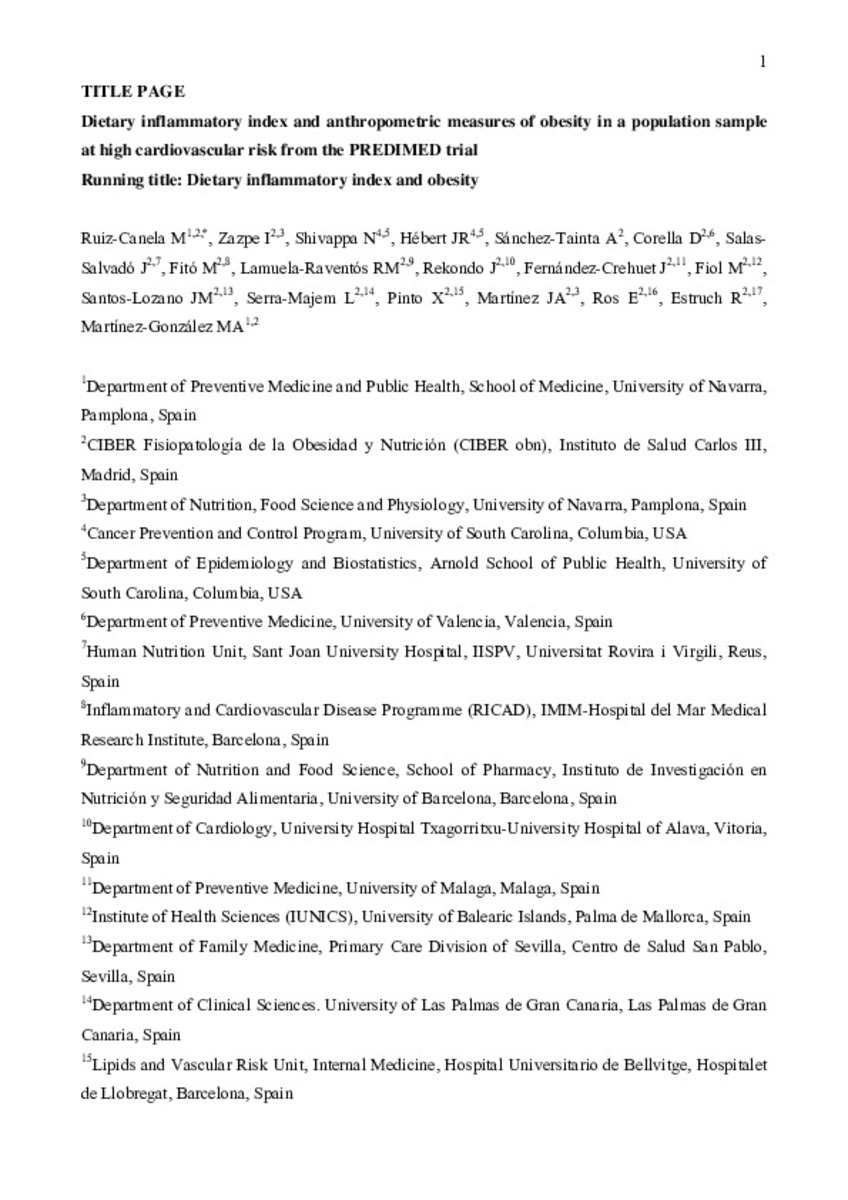Project:
Biomedical Research of the Spanish Government, Instituto de Salud Carlos III (ISCIII); RTIC G03/140 ; CIBERobn; RTIC RD 06/0045. Centro Nacional de Investigaciones Cardiovasculares CNIC06/2007; Fondo de Investigación Sanitaria - Fondo Europeo de Desarrollo Regional (PI04-2239, PI 05/2584, CP06/00100, PI07/0240, PI07/1138, PI07/0954, PI07/0473, PI10/01407, PI11/01647), Ministerio de Ciencia e Innovación (AGL-2009-13906-C02, AGL2010-22319-C03), Fundación Mapfre 2010, Public Health Division of the Department of Health of the Autonomous Government of Catalonia and Gene ralitat Valenciana (ACOMP06109, GVACOMP2010-181, GVACOMP2011-151, CS2010- AP-111 and CS2011-AP-042); joint contract (CES09/030) with the Instituto de Salud Carlos III and the Health Department of the Catalan Government (Generalitat de Catalunya).
Citation:
Rúiz-Canela M, Zazpe I, Shivappa N, Hébert JR, Sánchez-Tainta A, Corella D, et al. Dietary inflammatory index and anthropometric measures of obesity in a population sample at high cardiovascular risk from the PREDIMED trial. Br J Nutr. 2015 Mar;113(6):984-995








